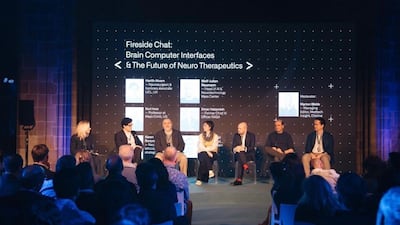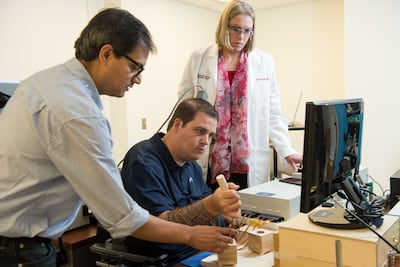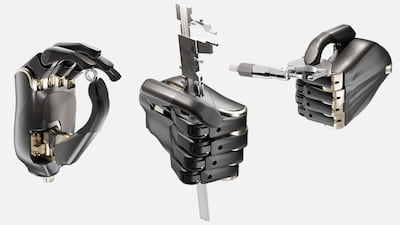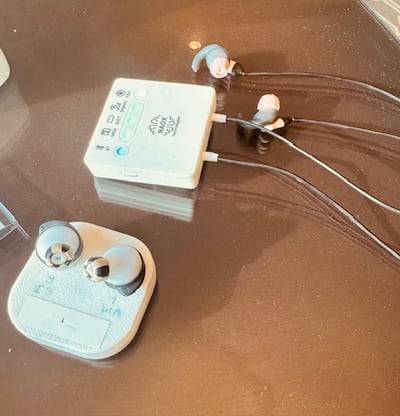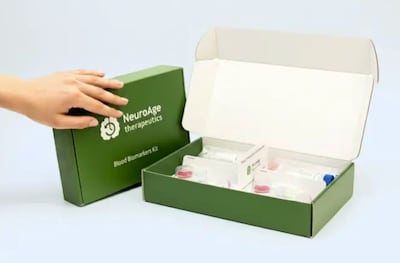Interviews
With capital being recycled, tariffs settling and interest rates softening, 2026 could provide more investment and growth opportunities in pharma and medtech, with AI giving a tailwind, say Taylor Wessing’s Ross McNaughton and Sarah Cole.
Medtech Insight was invited to moderate a panel discussion with leading experts in neuroscience and AI during INBRAIN’s five-year anniversary in Barcelona, Spain. Panelists discussed the promises, perils in BCI development, neuroethics and outlook.
In this final part of a three-part series, Medtech Insight spoke with a neuroethicist and the first person in a trial using a BCI implant for stimulating hand movement. This story explores ethical considerations that arise when projects can no longer support patients with implanted devices.
In an era of AI and other advanced computing methods, pure-play mechanical devices could offer better pricing and practicality, according to the CEO of prosthetics company Metacarpal.
Atul Gupta, MD and CMO of Royal Philips’ Diagnosis & Treatment business, shares his views about potential developments in imaging and wider medtech in 2026 and the value of AI. He warns that clinicians will not adopt AI they don’t trust, understand or find helpful in real-world conditions.
After receiving the FDA nod for the first in-ear EEG device for brain monitoring, Noax plans four clinical trials in the US focused on epilepsy and is looking for audio company partners to integrate the same tech for use by consumers to monitor their brain activity, the company told Medtech Insight.
MIT-scientist turned entrepreneur Christin Glorioso founded start-up NeuroAge Therapeutics to reverse brain aging and fight dementia.
Wishes for 2026 from our medtech experts focused on value-based care, faster reimbursements, and better collaboration. Key ideas included enhancing patient engagement, reducing waste, and aligning coverage policies to improve health outcomes and innovation.
AI in medtech offers exciting potential for improving patient care and operational efficiency, but faces significant regulatory challenges. Ensuring data quality and building trust among users are essential for successful AI integration in healthcare, our expert panel said.
As medtech moves toward 2026, experts highlight increased regulatory complexities, particularly around AI, cybersecurity, and device user fees. Urgent regulatory updates are needed to keep pace with rapid technology changes while ensuring patient safety and operational efficiency.
Our experts said investor confidence in medtech is recovering as we head into 2026. Expect larger, selective fundraising and heightened M&A activity, focusing on innovative firms in neurology, cardiovascular health, and AI-driven technologies. Companies with solid strategies are favored.
In this first roundup from CES, Medtech Insight shines a light on AI-powered technologies that help the aging population live healthier and stay independent longer.
As our experts know, the geopolitical and macroeconomic uncertainties reshaping the medtech industry make resilience and innovation more important than ever. Companies are onshoring to sidestep supply chain fragility prompts onshoring, while healthcare systems demand proven value.
Opinions on the medtech industry’s high and low points in 2025 varied. Some experts celebrated innovations and increased investments, while others highlighted negative aspects like staff cuts and challenges at the FDA.
The EU's medtech regulatory landscape is shifting, influenced by the Commission's proposed changes. Experts note opportunities and concerns emerging from these reforms, highlighting the need for transparency, efficiency, and adaptability to new technologies by 2026.
Medtech Insight spoke with CTA board member Carlos Nunez and AARP’s Andy Miller about what to expect at this year’s CES.
During his 40 years at Royal Philips, Bert van Meurs has seen the medical devices business grow in line with the evolving needs of healthcare providers with whom the company partners in customer and patient focused innovation.
In this second of a three-part series, Medtech Insight spoke with three neuroethicists who raised concerns about privacy, patient safeguards and the need for comprehensive guidelines. These issues are becoming more pressing as BCI companies get ready to commercialize their products.
Medtech leaders expect faster change in 2026 as AI integration speeds up across all business aspects, according to a Deloitte survey of medtech execs that also predicted M&A activity will remain strong in 2026. While optimism is high, uncertainties remain.
Shantanu Gaur, CEO of Allurion Technologies, a company that has developed a swallowable gastric balloon, believes that GLP-1 sales could indirectly lead to increased demand for medical device-based bariatric procedures, especially as patients seek alternatives to drug side effects and weight regain.


